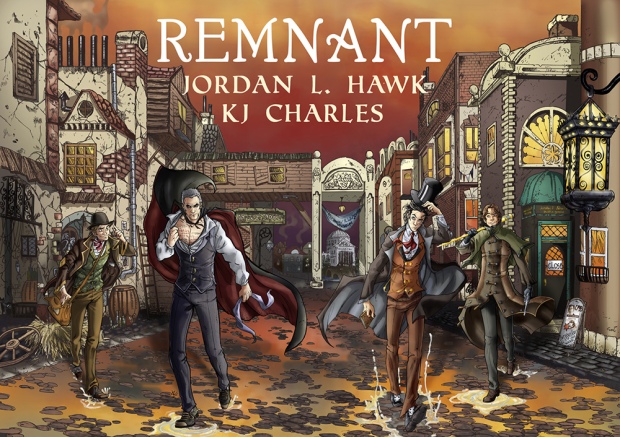Terry Pratchett, dead at 66, was a humanist, in the best and widest sense. It is impossible to read him without getting a sense of his huge compassion, a deep understanding and acceptance of people in all their flaws, petty and huge. I think it may be this that made his passing a source of active grief to so many. People wept. I wept. I sat on the bed with Reaper Man, and read the scene where Death begs a little more time for Miss Flitwick, and cried big, snotty, ugly tears, because I didn’t want him to be gone. (Or, more specifically, because I wanted him not to have had Alzheimer’s, not to have had his mind taken from him so cruelly early, to be alive and well.)
‘Compassion’ is one of those words. Terry Pratchett was not a twinkly jolly kindly uncle, nor was he a flaccid liberal. The body count in his books is high. There is retribution. Death comes with a sword as well as a scythe. It’s fantasy, and the heroes kill monsters, but the monsters are not dragons and trolls; they are us. He loathed the idea of meaningless forgiveness and the ‘can’t we all just get along?’ school of argument. Hogfather, his great attack on shallow sentimentality (“Real children do not go hoppity skip unless they are on drugs”), skewers this perfectly, with its well-meaning department store display of Dolls of All Nations playing the song ‘Wouldn’t It Be Nice If Everyone Was Nice’.
Pratchett’s compassion was not sentimental: it was fierce, and angry, and uncompromising. But it was still compassion, and not the ‘compassion’ offered by some religions which entails torturing people for their own good. (Small Gods is a roar of rage against that.) He offered a clear-sighted look at humanity, and an intense belief in our capacity for good as well as evil. This line from Reaper Man says everything. (Death speaks in capitals, incidentally, and without quotation marks.)
THERE IS NO HOPE BUT US. THERE IS NO MERCY BUT US. THERE IS NO JUSTICE. THERE IS JUST US.
That is humanism: accepting the moral responsibility for ourselves because there’s nobody else to give it to us, and knowing that if we don’t take that responsibility, if we don’t provide the hope and mercy, and the justice as well, our night will be long and dark indeed.
I believe in freedom. Not many people do, although they will of course protest otherwise. And no practical definition of freedom would be complete without the freedom to take the consequences. Indeed, it is the freedom upon which all the others are based.
(Going Postal)
I grew up reading Pratchett, from his early fantasy parodies, watching him mature into not just a deeply wise thinker, but a superb stylist. As a genre writer, I am prickly about the dismissiveness with which genre is treated, the relentless belittling of I don’t read that stuff and Why would you write that rubbish. Pratchett is one of the great writers who show precisely what genre can do, that it can be as well written and say as much as any kind of writing. It took a very long time for him to get critical as well as popular recognition for his skill, in part because he wrote not just fantasy but comic fantasy, of all the low-status things. (Some people apparently don’t understand that any half-arser can throw in terrible human suffering to give their book Deep Meaning, whereas it’s actually hard to write a good joke.)
He used his world of swords and sorcery, silly names and funny gods, to say so much, as well as so cleverly. He filled his books with so many good jokes that you’re still spotting new ones on the tenth reading. (There are two rival clans in his fantasy city, the Selachii and the Venturi. Look up selachii. Know that ‘venturi’ is an air flow, or jet. Kick yourself.) At his best he wrote with magnificent wit and precision, with his narrative description as compelling as his action scenes. He was passionately committed to the value of laughter and the value of imagination.
HUMANS NEED FANTASY TO BE HUMAN. TO BE THE PLACE WHERE THE FALLING ANGEL MEETS THE RISING APE.
(Hogfather)
We have lost a great man and a great writer. Yesterday his legacy was visible: so many people exchanging quotes, naming favourite books, glorying in his work. Tomorrow I hope his legacy will be every genre writer writing with pride, as well as she possibly can, and every one of the millions who read his books remembering what he had to say about imagination, and laughter, and compassion. And, most of all, about facing up to our duties to one another, not just to ourselves.
As it happens, this week in romance was distinguished by some fairly crappy stuff. An article in the official publication of Romance Writers of America recommended that authors could avoid losing sales by remaining ‘neutral’ on ‘polarising’ subjects such as equal rights for LGBT people and racist police brutality. (Not in those words, needless to say. Summary here.) This was along with a particularly disgusting business of authors making 50 Shades jokes about the rape of a 14-year-old black slave, and a flurry of defence in which people literally tried to explain away the problems inherent in turning the actual life of an enslaved woman into either a romance or a BSDM fantasy, for God’s sake, what the hell is wrong with you?
Well, Terry Pratchett knew what the hell was wrong with you, and here it is, in a comic fantasy about vampires, during a conversation between people with silly names.
” […] sin, young man, is when you treat people as things. Including yourself. That’s what sin is.”
“It’s a lot more complicated than that–”
“No it ain’t. When people say things are a lot more complicated than that, they means they’re getting worried that they won’t like the truth. People as things, that’s where it starts.”
“Oh, I’m sure there are worse crimes–”
“But they starts with thinking about people as things.”
(Carpe Jugulum)
Rest in peace, Terry Pratchett. I leave you with a quote from Sourcery that means everything to me, as romance author:
“And what would humans be without love?”
RARE, said Death.
______________________________
If you have not read Terry Pratchett, don’t start from the beginning. Go for Reaper Man, Hogfather, Thief of Time, The Truth or Going Postal, all of which work standalone. Then go back and start the Guards sequence from Guards, Guards! and the Witches sequence from Wyrd Sisters. Then read all the other ones.
Comments about Terry Pratchett, shared quotes and memories and requests for recommendations, are very welcome.
Comments defending the slave book, or any other aspects of the associated row, will get you kicked off here so hard you’ll bounce.
______________________________
KJ Charles is a freelance editor and writer. Her most recent release is Jackdaw, published by Samhain. Think of England won Best LGBT Romance in the All About Romance 2015 Readers Poll.







